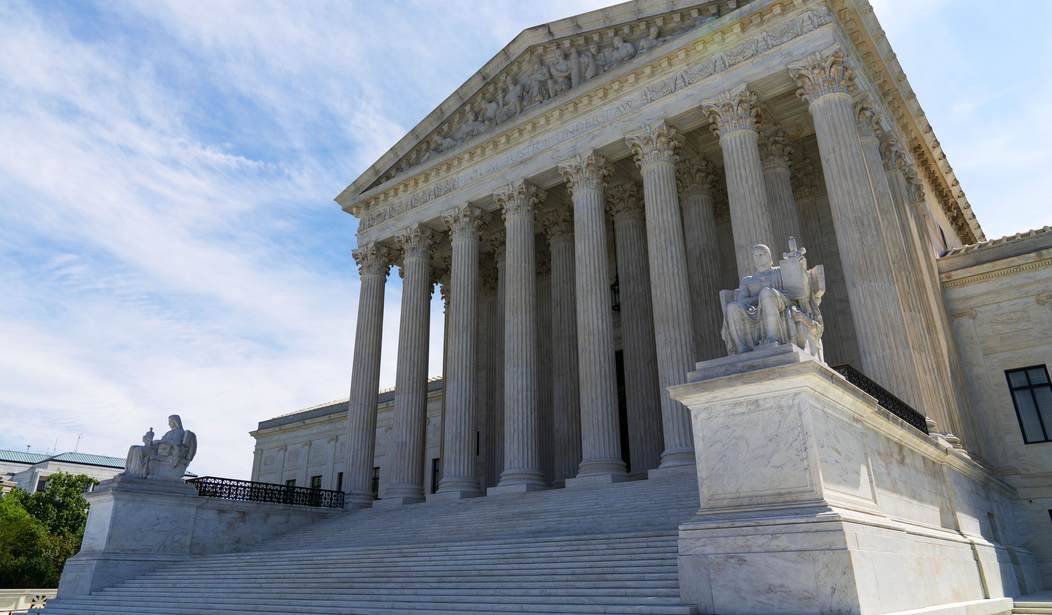A Texas law banning most abortions once a fetal heartbeat is detected, at around six weeks, went into effect last week. The U.S. Supreme Court allowed it to do so by failing to block it, and subsequently released an unsigned 5-4 opinion, which emphasized it was a procedural matter.
Both sides of the abortion issue have referenced the fate of Roe v. Wade. This includes the dissenting opinion from Justice Elena Kagan in that "because of this Court’s ruling, Texas law prohibits abortions for the vast majority of women who seek them—in clear, and indeed undisputed, conflict with Roe and Casey."
Curt Levey, a constitutional law attorney and the president of the Committee for Justice, provided takeaways, which addressed such reactions:
1) Despite the immediate hysterics from the Left—announcing the effective demise of Roe v. Wade—the ruling did nothing to modify or weaken the Court’s abortion precedents. Instead, the Court made it clear that its order "is not based on any conclusion about the constitutionality of Texas’s law,” is based entirely on procedural issues, and “in no way limits other procedurally proper challenges to the Texas law."
Further, he doesn't think this will be the end of the road for the Texas law. Rather the focus should be on Dobbs v. Jackson:
2) In fact, the Texas law, which bans abortions after six weeks of pregnancy, is likely to ultimately be struck down, precisely because Roe is unlikely to be overturned anytime soon. However, Roe may be circumscribed next spring in Dobbs v. Jackson Women’s Health, involving Mississippi’s 15-week abortion limit. Dobbs, which will be argued a few months from now, is the abortion case to watch.
Sure enough, almost immediately after the Supreme Court released the opinion, a state judge handed a narrow victory to Planned Parenthood against Texas Right to Life in that the latter could not sue the abortion provider under the statue. Both parties have recognized this is not the end of the line for the law.
Recommended
There's still hope for pro-lifers, Levey notes:
3) Nonetheless, last [week]'s decision, the most important abortion ruling since Justice Amy Coney Barrett joined the Court, is an important step in the right direction for abortion opponents. The biggest obstacle to the Court curtailing Roe is not the Constitution—its text contains nothing hinting at a right to abortion—but the Court’s willingness despite knowing it will be pilloried by the nation's academic, media and cultural elites. That the Court’s three newest justices followed the rule of law yesterday rather than worrying about elite opinion is what makes last night’s ruling so significant.
Levey also spoke in-depth with Townhall. Despite some on both sides of the issue thinking Dobbs is all but decided now, Levey said "it depends." As Levey indicated in his published takeaways, the Texas law is also not constitutionally decided, and may likely go to other courts.
When it comes to the optimism that the pro-life movement has over allowing for the law to go into effective, Levey offered this is most of all "a psychological" victory of sorts.
Beyond how this reminds people that it is likely that there are least five justices who "are sympathetic to the pro-life side," Levey pointed out "there's plenty of good reasons to overturn [Roe], including that it never had any basis and remains Sui genesis." This means it "denotes an independent legal classification", according to the Wex Definitions team at the Legal Information Institute with Cornell Law School.
This "is often given as a reason for overturning something," Levey explained. "So they're fine on their sympathies, they're fine on their personal bias, they're fine on the Constitution. The one thing that would stop them is being afraid." He went on to explain that "the politics side of this" is what's "standing in the way of Roe v. Wade being, at least partially overturned is just justices having the courage to do what they already believe."
From the perspective of a pro-life organization involved in the movement, Kristi Hamrick, the Chief Media and Policy Strategist of Students for Life of America (SFLA) weighed in when speaking to Townhall.
She mentioned that this is a "baby step in the right direction," especially since it is an "acknowledgment that Roe is deeply flawed."
Hamrick offered that "what [the Texas law] says... profoundly is that we need to reengage the balance of powers in the Democratic process," which "is letting people voice and vote on their pro-life views." Because of Roe, which was decided by seven-male justices, Hamrick reminded, "people have been shut out of the process."
SFLA "was founded with a post-Roe vision," which Hamrick pointed out, "was very controversial at the time," since "most people did not believe that Roe could be overturned. Hower, "more and more people believe it today," Hamrick mentioned.
Hamrick explained that the organization has "always had a two-pronged approach, both that life needs to be protected in law, but that also we then need to prepare to serve mothers and pre-born children." This especially includes efforts right on the ground, including in Texas.
Following the election, political tools used by the organization have been retested, which Hamrick says "connect people with services in the community." She explained that the organization "is trying to be a bridge" for those choosing life, emphasizing that they use their networks in their communities where they actually live.
Hamrick emphasized that SFLA is very much aware that once they are living in "a post-Roe, post-Dobbs environment," they will need to be "very deliberate in their efforts" to assist women making sure they have the services they need. "We have to do both," Hamrick emphasized.
























Join the conversation as a VIP Member